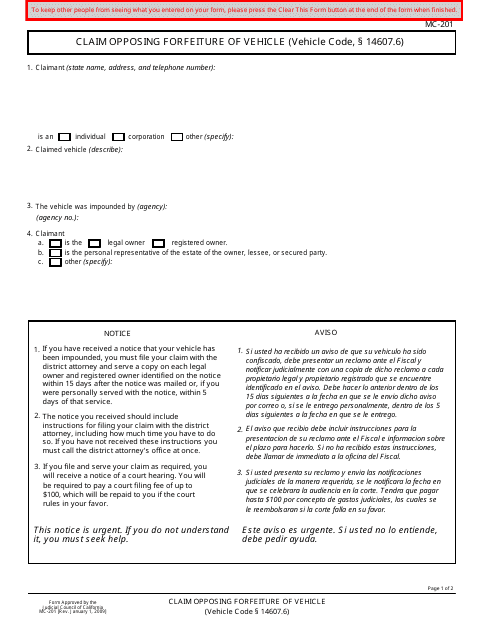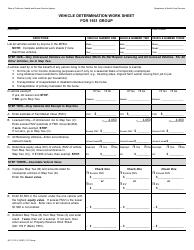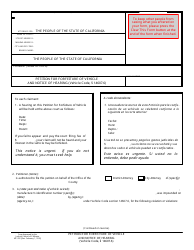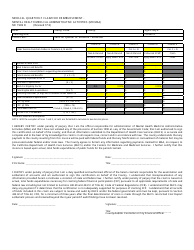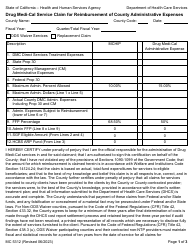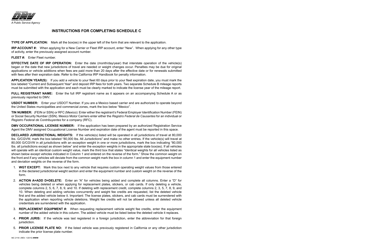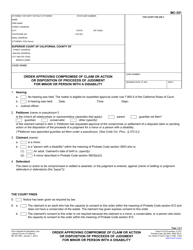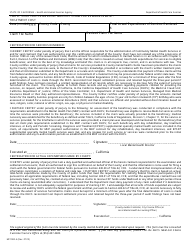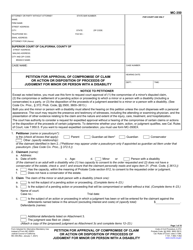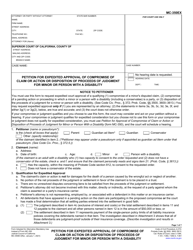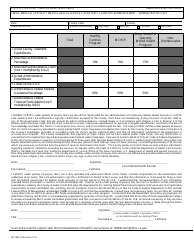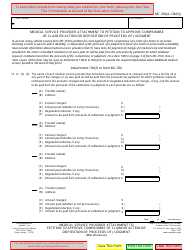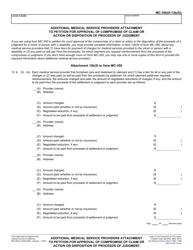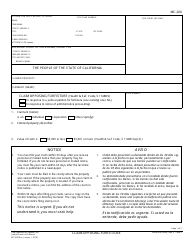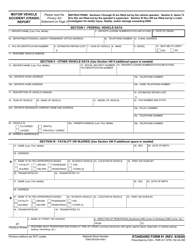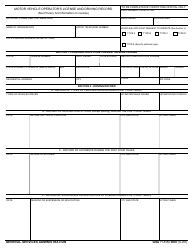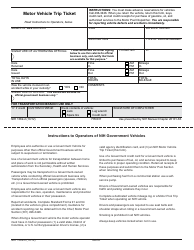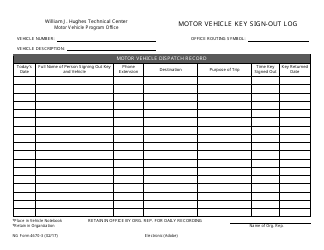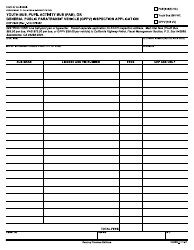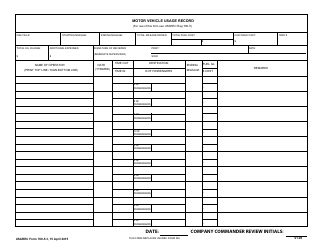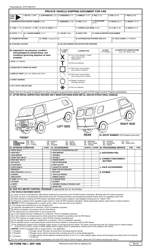Form MC-201 Claim Opposing Forfeiture of Vehicle (Vehicle Code, 14607.6) - California (English / Spanish)
What Is Form MC-201?
This is a legal form that was released by the California Judicial Branch - a government authority operating within California. As of today, no separate filing guidelines for the form are provided by the issuing department.
FAQ
Q: What is Form MC-201?
A: Form MC-201 is a legal document used in California courts to oppose the forfeiture of a vehicle.
Q: What is forfeiture of a vehicle?
A: Forfeiture of a vehicle refers to the legal process where the government seizes a vehicle due to its involvement in criminal activity.
Q: What is Vehicle Code 14607.6?
A: Vehicle Code 14607.6 is a specific section of the California Vehicle Code that relates to the impoundment and forfeiture of vehicles involved in certain offenses.
Q: Who can use Form MC-201?
A: Anyone who wants to oppose the forfeiture of their vehicle in California can use Form MC-201.
Q: Is Form MC-201 available in English and Spanish?
A: Yes, Form MC-201 is available in both English and Spanish versions.
Q: Do I need a lawyer to fill out Form MC-201?
A: While not required, it may be beneficial to consult with a lawyer when filling out Form MC-201 to ensure you complete it accurately and effectively.
Q: What should I do after filing Form MC-201?
A: After filing Form MC-201, you should follow the instructions provided by the court and attend any scheduled hearings regarding your vehicle's forfeiture.
Q: Can I recover my vehicle if I file Form MC-201?
A: Filing Form MC-201 does not guarantee that you will recover your vehicle. The court will consider your opposition and evidence before making a decision.
Q: What are the possible outcomes after filing Form MC-201?
A: The court may decide to return your vehicle, release it to a lienholder, or uphold the forfeiture, depending on the evidence presented and the circumstances of the case.
Form Details:
- Released on January 1, 2009;
- The latest edition provided by the California Judicial Branch;
- Easy to use and ready to print;
- Quick to customize;
- Compatible with most PDF-viewing applications;
- Fill out the form in our online filing application.
Download a fillable version of Form MC-201 by clicking the link below or browse more documents and templates provided by the California Judicial Branch.
